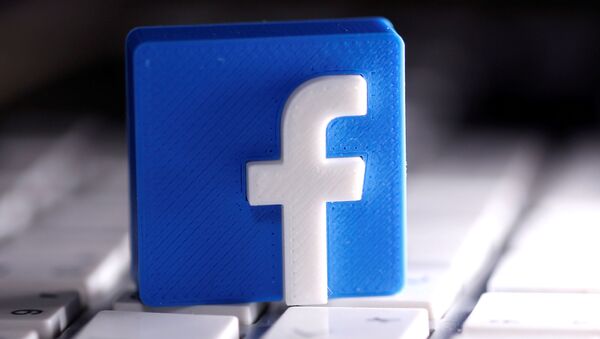Over a hundred companies have joined a campaign to pause advertising with Facebook in a bid to change the company's allegedly lax policy on divisive speech.
The company's founder Mark Zuckerberg has announced a number of relatively modest concessions in a bid to head off the crisis, however this marks a significant policy shift as far as the social media giant is concerned.
The #StopHateForProfit movement, which is encouraging businesses to pull ads from Facebook for the month of July, has been boosted by big names like Verizon, Coca-Cola, Patagonia, Unilever, and Honda.
The campaign, launched this month by several civil rights groups, wants to pressure Facebook to adopt stricter policies to curb incitement to violence and the spread of misleading information on its platform.
Facebook had previously drawn criticism for its refusal to moderate posts by US President Donald Trump, including one saying that “looting” leads to “shooting”. It stands in contrast to Twitter’s decision to put a warning label on a similar tweet and adding a fact-checking label to another message about George Floyd protests as being potentially misleading.
Is the threat that big for Facebook?
Mark Zuckerberg’s company makes nearly all of its revenue through advertising, and the boycott has already affected its stock. Facebook’s share price dropped by 8 percent on Friday after Unilever, which owns Dove and Lipton brands, said that its boycott would last for the remainder of the year. Others are pulling back advertising for July for the time being.
“Previously, such content moderation pressures were mostly applied by consumers and other activist groups which did not affect the cash position of Facebook as much,” says Paurav Shukla, Professor of Marketing at the Southampton Business School at the University of Southampton.
“However, this time it is different. If a significant number of advertisers and advertising agencies participate in Facebook, it may have lasting consequences for the company and wider social media space.”
Whether the boycott is meaningful enough in financial terms is unclear. Small businesses generate most of Facebook’s revenue, while the top 100 advertisers bring in less than 20 percent of the money, estimates venture capitalist Hussein Kanji from the London-based Hoxton Ventures.
“I wonder if the advertisers would have taken this position in a boom market,” Kanji adds. “Consumer demand is weak today since the economy has been hit by the global pandemic.”
Facebook has two major advantages in dealing with the boycott, argues Professor Shukla. First, it has a “cash cushion” available as it is the most attractive market for advertisers thanks to its unmatched audience and access to users’ preferences. Second, it also owns Instagram which means that “if advertisers divert their money towards the popular alternative to Facebook, it will still continue to earn money.”
The real pressure is going to come from the world of advertising agencies, which is dominated by several big companies, adds Shukla: “For example, Goodby Silverstein, which is part of the Omnicom group and has clients such as Adobe, BMW, Cisco, NFL network and Pepsi has joined the Facebook boycott on Wednesday.”
“Many of these full-service advertising agencies are the real decision makers in terms of where their clients’ advertisements will appear and if other agencies join this boycott, it would mean that Facebook’s ad revenues will dry up much quickly than envisioned.”
The battle for power balance
Mark Zuckerberg on Friday announced several comparatively modest changes to Facebook’s moderation policy. Those include a pushback against voter suppression and better standards for hateful content in ads.
Zuckerberg also promised that Facebook would put warning labels on posts from politicians that violate its rules but are considered newsworthy, in a move that appeared to specifically address concerns about Donald Trump’s posts. However, Zuckerberg did not clarify what those labels would look like and to what extent the politicians could try their luck without getting banned.
The announcement came just days after Facebook organised a call with about 200 advertisers on which a senior executive admitted that the company has a “trust deficit” and wants to repair it via dialogue with clients.
Professor Shukla argues that the snowballing boycott represents a “battleground for power balance” between Facebook and the advertising community: “Currently, the options to advertise in digital space are quite limited for advertisers and so from the basic laws of information asymmetry, Facebook is in the position of power. However, with a collective action, the advertiser community can change this substantially.”
How the boycott will play out is yet unclear. The president of one of the groups behind the campaign, Color of Change’s Rashad Robinson, has already said that Zuckerberg’s announcement was a “wasted opportunity”.


